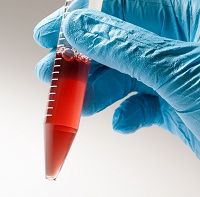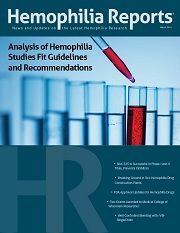BAX 335 is Successful in Phase I and II Trials, Prevents Inhibitors
Seven patients have been treated successfully for hemophilia B and so far essentially none have developed inhibitors, according to the results of phase I and II trials of Baxalta drug BAX 335.

Seven patients have been treated successfully for hemophilia B and so far essentially none have developed inhibitors, according to the results of phase I and II trials of Baxalta drug BAX 335.
The research was presented at the International Society on Thrombosis and Haemostasis Congress in Toronto, Canada in June. BAX 335 is an investigational factor IX (FIX) gene therapy treatment for hemophilia B designed to provide a mechanism for the patients’ own livers to produce FIX over an extended period of time following a single treatment dose.
The seven patients involved in the study were treated in three sequentially ascending dosing cohorts, and none of the patients were found to have developed inhibitors. The lowest cohort was treated with 2x1011 vector genomes [vg] per kilogram of body weight: vg/ kg and some FIX expression was observed in this group. The second group was treated with 1x1012 vg/ kg, and two patients experienced no bleeds without regular infusions of FIX. Additionally, one of these patients had sustained FIX expression levels of 20 to 25 percent for one year.
The third and highest dosing cohort was treated with 3x1012 vg/ kg and demonstrated expression levels at above 50 percent; however, two of these patients experienced an immune response which led to decreased FIX expression, the researchers said. One of those two patients resumed regular FIX infusions.
In previous studies, gene therapy technology has successfully managed immune responses. Additionally, throughout the study, immune responses were observed to maintain target trough levels.
“Gene therapy has the potential to achieve a long term therapeutic solution for people with hemophilia and will continue to be a key focus for Baxalta,” John Orloff, MD, vice president and global head of research and development at Baxalta, explained in a press release. “We continue to advance this program as we learn more about this new concept and its value for those living with hemophilia, with an opportunity to truly transform the treatment paradigm.”
Eventually, Baxalta hopes to modify the drug therapy so that only a single dose, administered intravenously, would be necessary. The company hopes another endpoint of the study can be to stabilize therapeutic plasma FIX activity, in addition to pharmacokinetics and immune response treatment. Additional patients are still being recruited to join the study.
Baxalta is also planning on examining the gene therapy technology for the treatment of hemophilia A, the statement concluded.
